 Hence if the numerator and denominator of a fraction be multiplied by the same number the value of the fraction is not altered. Hence if the numerator and denominator of a fraction be multiplied by the same number the value of the fraction is not altered.  Algebra - Page 53by Isaac Todhunter - 1858 - 496 pagesFull view Algebra - Page 53by Isaac Todhunter - 1858 - 496 pagesFull view - About this book
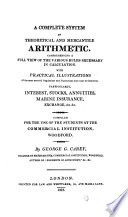 | George G. Carey - Arithmetic - 1818 - 602 pages
...both ğincreased or diminished in the same proportion, that is, if they arc both multiplied or divided by the same number, the value of the fraction is not altered ; therefore every Vulgar Fraction may be expressed in a variety of forms, and yet retain the same value.... | |
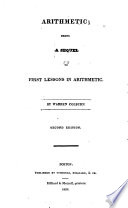 | Warren Colburn - Arithmetic - 1824 - 292 pages
...multiplied. NB It appears from the above reasoning, that if Both the numerator and denominator of any fraction be multiplied by the same number, the value of the fraction will remain the same. It will follow also from this, that if both numerator and denominator can be... | |
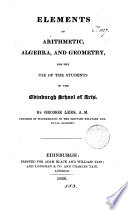 | George Lees - 1826 - 276 pages
...their common denominator. The principle of this rule is, that if the numerator and denominator be both multiplied by the same number, the value of the fraction is not altered. That both terms are multiplied by the same number, by applying the preceding rule, will readily appear... | |
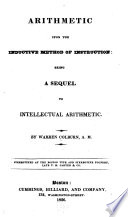 | Warren Colburn - Arithmetic - 1826 - 264 pages
...multiplied. NB It appears from the above reasoning, that if both the numerator and denominator of any fraction be multiplied by the same number, the value of the fraction will remain the same. It will follow also from this, that if both numerator and denominator can be... | |
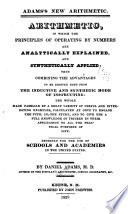 | Daniel Adams - Arithmetic - 1828 - 286 pages
...mixed number by a mixed number? 23. How does it appear, that in multiplying both terms of the fraction by the same number the value of the fraction is not altered? 24. How many ways are there to divide a fraction by a whole number ? — What are they? 25. How does... | |
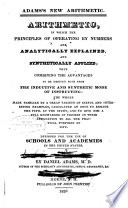 | Daniel Adams - Arithmetic - 1828 - 266 pages
...mixed number by a mixed number ? 23. How does it appear, that in multiplying both terms of the fraction by the same number the value of the fraction is not altered ? 24. How many ways are there to divide a fraction by a whole number ? — What are' they? 25. How... | |
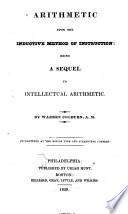 | Warren Colburn - 1829 - 258 pages
...multiplied. NB It appears from the above reasoning, that if both the numerator and denominator of any fraction be multiplied by the same number, the value of the fraction will remain the same. It will follow also from this, that if both numerator and denominator can be... | |
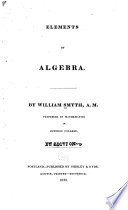 | William Smyth - Algebra - 1830 - 278 pages
...demonstrating certain properties in relation to known and given numbers. if To demonstrate that if both terms of a fraction be multiplied by the same number, the value of the fraction will not be changed. Let the proposed fraction be designated by p and let n be any number whatever.... | |
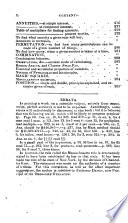 | Frederick Augustus Porter Barnard - Arithmetic - 1830 - 308 pages
...decimals. Another mode of explaining the above operation may be given. 13. Change Jg to a decimal. If both numerator and denominator of- a Fraction be multiplied by the same . number, the value will not be altered, (§ XLI.) I may therefore multiply both the 7 and the 16 in the above Fraction,... | |
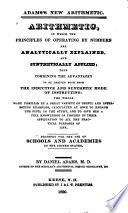 | Daniel Adams - Arithmetic - 1830 - 280 pages
...mixed number by a mixed number ? 23; How does it appear, that in multiplying both terms of the fraction by the same number the value of the fraction is not altered ? 24. How many ways are there to divide a fraction by a whole number? — What are they ? 25. How does... | |
| |